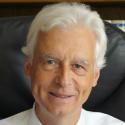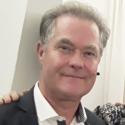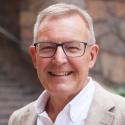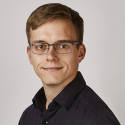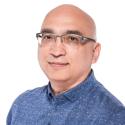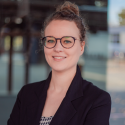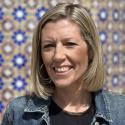2024 Scientists Network
- Image

The European Science Network is committed to two main purposes: (1) Increase the praise of God the Creator-Saviour through what humans study and know in His creation (Col 1:16) and (2) Put scientific findings in the context of His Word so that what we know about His creation will not obfuscate our knowledge of Himself (2 Cor 10:5).
In order to achieve its purposes, the European Science Network is geared to serve two kinds of audiences: (1) Scientists and Christians interested in science will obtain the knowledge, language, and courage to do science and speak about science within the framework of a Bible-informed Christian understanding of the cosmos. (2) Christians of all backgrounds will be helped to understand and interact with scientific findings and claims in a way that is truly apologetic, integrating scientific facts into the Christian worldview in an affirmative, active way rather than only defensively and reactively. At the same time, the demarcation lines will be demonstrated between scientific facts and their interpretation by naturalistic vs. Christian worldviews. We do not shy away from sensitive subjects like the evolution debate and ethical implications, engaging in constructive, respectful discussions.
What Network Participants Are Saying
- "Attending the Forum’s Scientists Network was an incredibly enriching experience, one that has broadened my horizons and expanded my knowledge in ways I could not have imagined. It has also had a profound impact on my personal and spiritual growth. The opportunity to interact with amazing professionals, researchers, and experts in the field of science has been invaluable. The Forum has provided a platform for me to learn about the latest advances, emerging trends, and cutting edge research on intelligent design, artificial intelligence, and neuroscience, all linked to God. The insights and knowledge I’ve gained will shape my future endeavors and enhance my contribution to my field."
- Dana Stanciu, Pharmacy Resident and PhD Student, Romania - "First, I am inspired by the example of other scientists who are part of the Forum’s Scientists Network. My motivation is strengthened and I am encouraged to continue to improve in my own work. The lectures and workshops provide great content and help keep my knowledge up to date. Finally, I have access to valuable resources like books and mentoring throughout the year."
- Ilona Simon, Assistant Professor, Hungary
Applicants should be involved in full-time scientific work or have a strong interest and background in the integration of science and Christianity. This Network will be led by Alexander Fink, Director of the Institute for Faith and Science, and Peter Imming, Professor of Pharmaceutical Chemistry in Germany.
Network Leadership
Network Speakers
Peter Borger (MSc, PhD) studied biology, specializing in biochemistry, molecular genetics and genome biology. He has taught and conducted research at the Universities of Groningen (Netherlands), Sydney (Australia), Basel (Switzerland) and Zurich (Switzerland). An expert in the molecular biology… Read more
Alexander Fink is Director of the Institute for Faith and Science (Institut für Glaube und Wissenschaft) in Marburg, Germany (www.iguw.de). He studied physics at Bayreuth and St. Andrews (UK) universities and received his PhD at the Institute for Biophysics at… Read more
Stefan Gustavsson is a member of the European Leadership Forum Steering Committee. He is the director for Apologia – Centre for Christian Apologetics and makes his home in Stockholm. He was the founding general secretary for 16 years of the Swedish Evangelical Alliance. Stefan travels widely… Read more
Ola Hössjer has been Professor of Mathematical Statistics at Stockholm University, Sweden, since 2002. He has done research in statistics and probability theory with applications in population genetics, epidemiology, and insurance mathematics. Hössjer is the author of 110 peer-reviewed articles… Read more
Peter Imming received degrees in pharmacy and chemistry and a PhD and venia legendi in pharmaceutical chemistry from a German university. He has been involved in drug chemistry teaching and research in Germany, the UK, China, Ethiopia and other countries. Until retirement in 2025, he was head of… Read more
Marius Keute has received his PhD in neuropsychology from the University of Magdeburg, Germany. For the last four years, he has been a postdoctoral scholar at the University of Tübingen, Germany, researching neurostimulation methods. He is married with two children and is a long-standing member… Read more
Štěpán Rucki is a Czech pediatrician with a special interest in pediatric cardiology. He graduated from the Faculty of Medicine in Brno. His scientific work focused on hypertension in children and adolescents, and he received his Ph.D. from Charles University in… Read more
Christina Stier is a neuroscientist passionate about brain imaging, mental and neurological disorders, lifespan research, and interindividual variability. She is currently a postdoctoral researcher at the University of Münster, Germany, in a city with a lot of bicycle traffic. In 2022, she… Read more
Kristy Williams has 18 years of experience as a full-time missionary in the context of youth ministry and leadership training. She serves primarily in Ukraine, though her love for training leaders takes her to different places across Europe with her missionary organization, Josiah Venture.… Read more
Network Programme
Sunday, 26 May
Adolescent brain development is highly sensitive to particular inputs, including social media. Research has shown a decline in adolescent mental health since 2012, the same year that key changes occurred with the large social media platforms. This session will look at the effects of social media and persuasive technology on brain development and addiction in order to consider how we can better shepherd the next generation.
This session will be divided into two parts:
Part 1: What Makes a Brain Resilient?
- Our daily life is filled with experiences that can challenge our mental and spiritual health, especially during adolescence. However, some persons seem to be more susceptible to negative influences, while others appear to have a strong mental immune system that keeps them healthy despite challenging experiences. In our talk, we will give an introduction to some of the neural and developmental mechanisms fostering resilience during adolescence and adulthood.
Part 2: Current Issues in Neuroscience
- Neuroscience is a broad and dynamic field of research, and it is not easy to keep track of recent developments and how they are relevant to Christian thinking. In this talk, two active neuroscientists will discuss some picks from recent neuroscience research and whether they support or challenge traditional Christian views of man, the brain, and the mind.
Monday, 27 May
The intellectual critique from the Enlightenment is still around, but in recent decades it has been superseded by aggressive moral critique of the Christian faith. In a dramatic cultural reversal, the accusation against Christianity is now that it is immoral, hurtful, and dangerous. Why this shift in the secular critique? And how can we, in such a poisoned cultural environment, engage in meaningful conversations about the Gospel?
A literal reading of the first chapters of Genesis suggests that animal and plant species can be grouped into kinds, such that species within the same kind have a common ancestry, whereas species from different kinds do not. This is often referred to as baraminology. This talk will review some recent genetics and other research on baraminology, the purpose of which is to identify Biblical kinds. Then, we will zoom into human ancestry and give arguments for why humans are their own kind, with a unique ancestry from a first-created human pair.
Tuesday, 28 May
Reproduction of organisms, including humans, is a critical condition for evolution. Without offspring, there is no evolution. Human reproduction consists of many steps, some of which are critical moments (including fertilization, implantation, immune toleration, hormones, and birth). These steps are potentially susceptible to many perturbations that can lead to fetal loss. It could be argued that these potential failures are evidence of an imperfect trial-and-error process of blind evolution. This session will examine whether the principles of design and foresight might provide a better explanation for this intricate complexity.
The latest research in the origin of life, self-replication, and nonequilibrium thermodynamics demonstrates that the foundation of living systems is information. This session will explain why even the simplest possible cell requires significant quantities of externally provided information. We will explore how cellular organisation is best understood within an engineering framework and how studies into life’s origin represent the earliest stages of the next great scientific revolution centred on the return of teleology to biology.
Wednesday, 29 May
How life on earth first began remains to be one of the most basic, interesting and difficult questions to answer. Experimental as well as model studies and reviews are numerous. The talk will categorise the various approaches to this ultimately unobservable beginning. With 'only' chemical materials, chemical processes plus information involved, possible scenarios are amenable to experimental and theoretical testing, in contrast to large organismal transitions in biology. Of late, non-reductionist non-theistic philosophies have been introduced in origin of life explanations. Is there currently a credible path leading from pre-life mixtures of chemicals to the first cellular organism?
Welcome to our "Q&A interview laboratory" led by Peter Imming and Alexander Fink. In this session, Network participants will be asked critical questions and have to answer them in an interview-like setting, with all the others evaluating the strength of the answer. Through this, we will learn how to give true and helpful answers.

